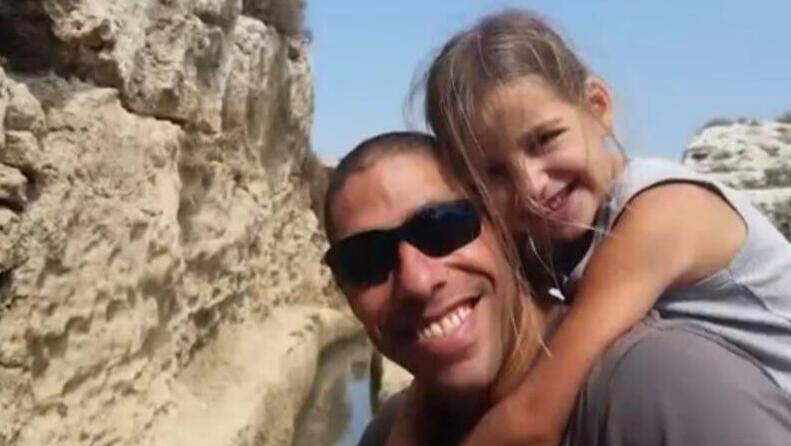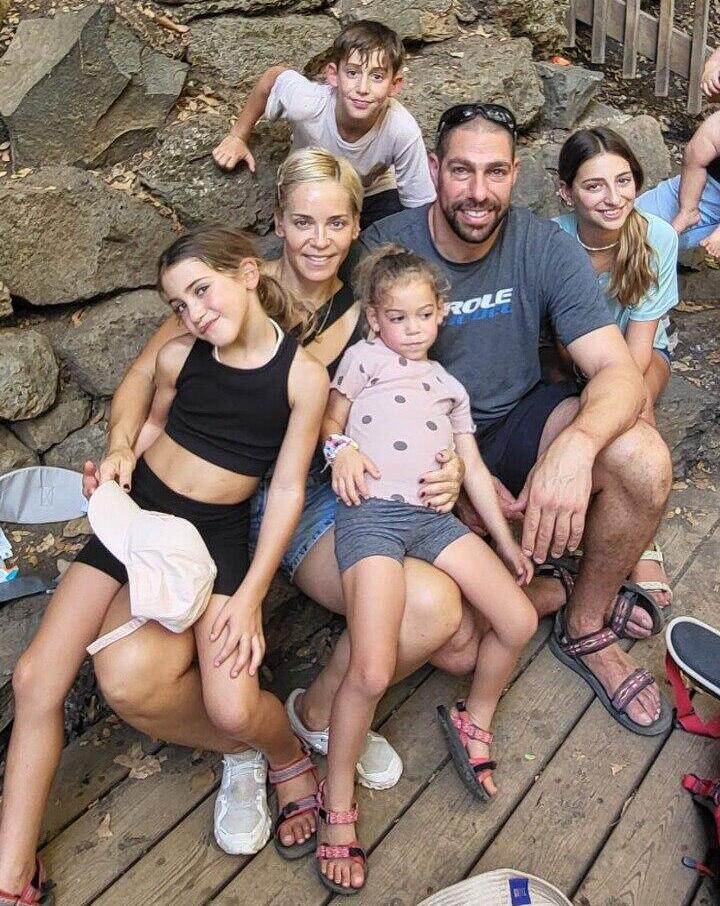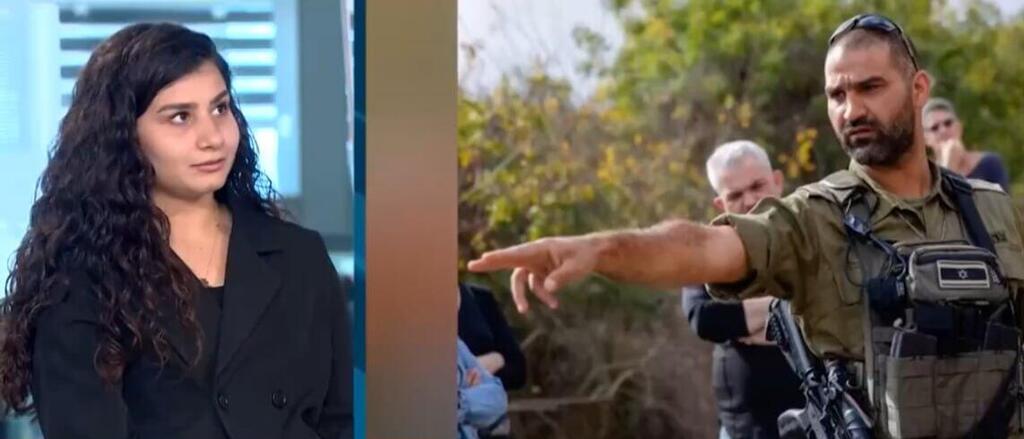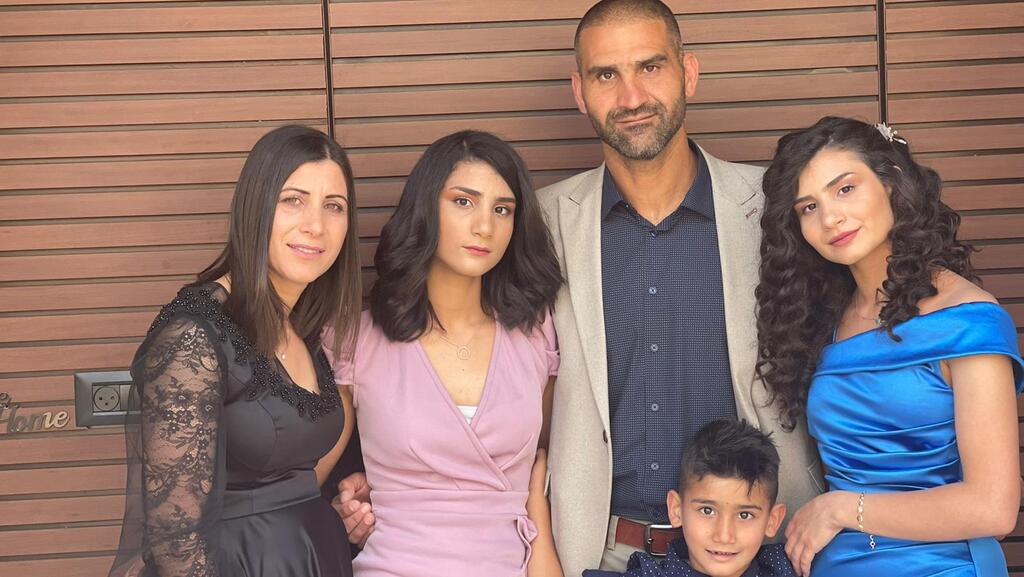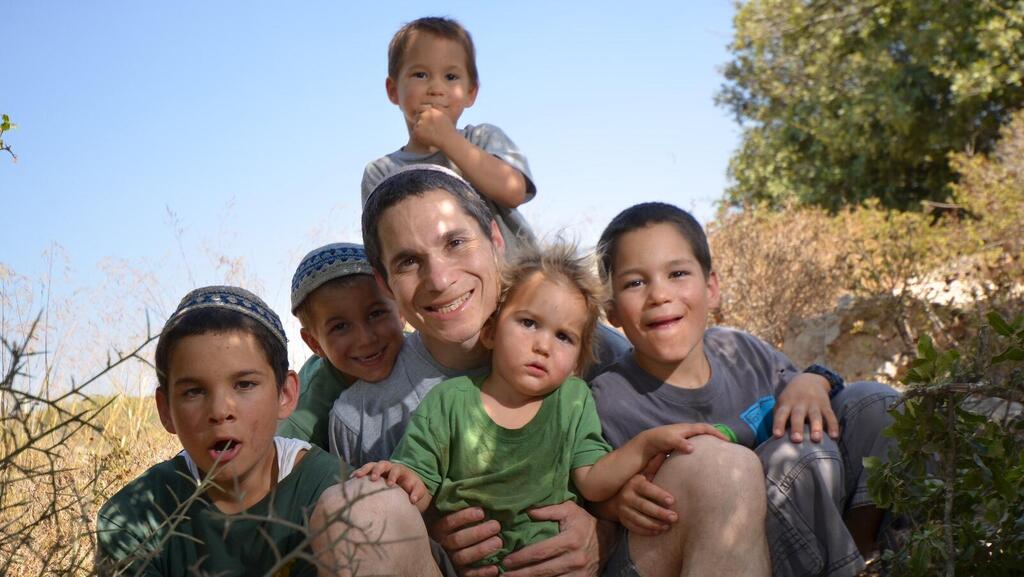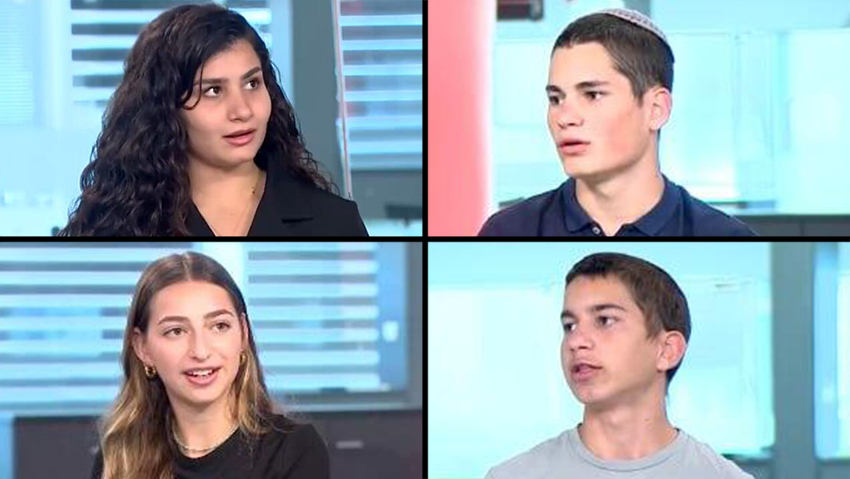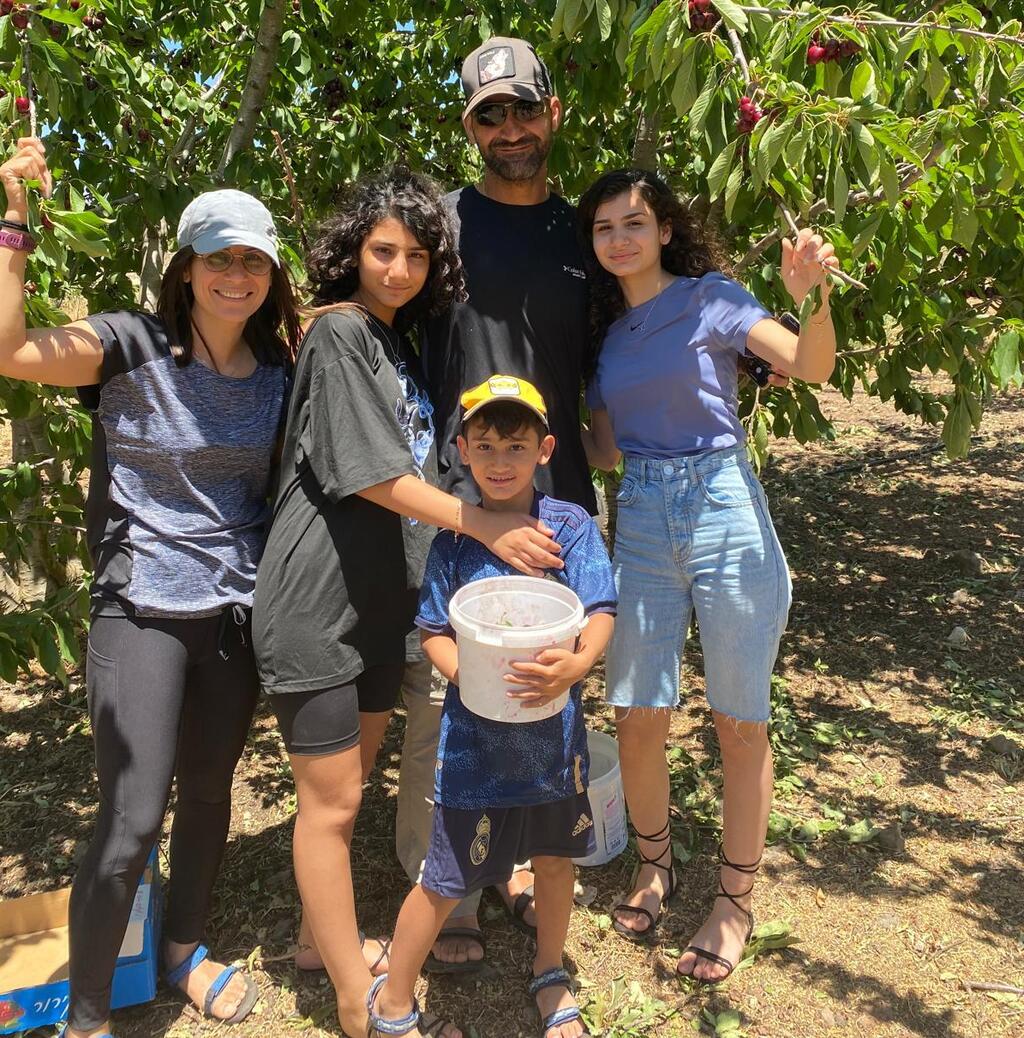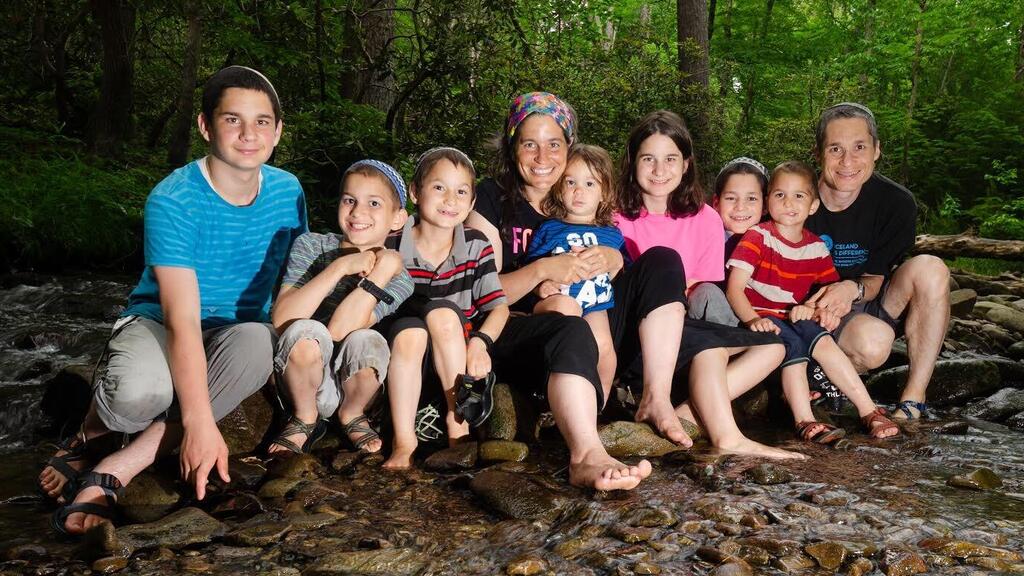Getting your Trinity Audio player ready...
Over 780 children have been orphaned since the war began on October 7. They lost their father or mother in the brutal terror attack or in the subsequent fighting in Gaza, the northern border and the West Bank. Some even lost both of their parents. Ynet spoke with four teenagers who lost their loved ones marking a year to the horrible massacre.
Mika's father, Lieutenant Colonel Eli Ginsburg, fell on October 8 in the battle for Kibbutz Be'eri. He was the commander of the IDF’s Counter-Terrorism Unit and had already been on leave, preparing for his discharge.
Mika, your father didn't have to go and fight. Does that weigh on you? Do you talk about it?
"Sometimes, but ultimately, this was the moment he was preparing for all those years in the army. So I understand his decision. I think everyone knew that he'd be the first to go if something like this happened."
Tell us a little about him. Beyond being a distinguished soldier, what did he love? What did you do together?
"He was the most amazing dad. He was present even when he wasn’t physically at home. He loved the sea and hiking across the country. He had a weird taste in music — really heavy rock."
Are there small things that have happened since October 7 that suddenly bring his presence back into your home?
"Everything. Walking around the house and suddenly remembering something or catching the scent of his cologne. Everything reminds me of him."
Lieutenant Colonel Alim Abdallah from Yanuh-Jat, Maia's father, was also nearing the end of his military service. He fell on the northern border during a battle with terrorists two days after the war started.
Maia, the fighting in the north is intense for you.
"There's been a war in the north since October 7, but it seemed like no one cared. Only now, after many have fallen, people are starting to grasp that there's a war in the north."
Tell us a bit about your father. What did he love? What did you do together?
"My dad was my best friend. He was in the army, so he wasn’t always physically with us, but he was always present even at a distance. We talked every day via video calls and messages. I shared everything with him; he knew everything about me."
He served in the IDF for many years. Were you worried about him?
"Yes, I was always worried. Even on his last day, I was worried. My sister had a strong sense that something was happening that day."
Did you have plans for his retirement from the army?
"Yes. We planned to go on a trip together for his retirement."
Major (res.) Eitan Menachem Naaman, father of Evyatar and Avinoam, fell in battle near Sderot during the early days of the war. He was a doctor at Soroka Medical Center and died while serving in the reserves.
Avinoam, tell us a bit about your dad.
"A central part of my dad's life was medicine. He started young, volunteering with Magen David Adom at age 15. He later studied medicine and became a doctor after finishing his studies. He was also a doctor in the reserves and volunteered with the Arad Rescue Team at the same time."
He dedicated his life to saving others.
"Yes. He always kept medical equipment at home in case one of us got injured. On Saturdays, people from the community would often come and ask for help with all sorts of injuries and illnesses."
How were you informed about the loss?
"They woke us up at 2 a.m. My sister said to me, 'Avinoam, get up.' I asked her, 'Why should I get up at this hour?' Then I saw soldiers in our house and thought, 'Please, let them just tell me he was injured,' but they said he was killed."
Following the loss, Evyatar, the younger brother, published a booklet aimed at helping other cope with the death of a friend or loved one.
Evyatar, tell us how the booklet came about.
"My friend and I were studying a book by a rabbi that talks about challenges during the time of redemption and we noticed that there weren't really any books for youth that discuss death —so we decided to write a booklet together.
“I really believe in taking action, especially when dealing with grief. Action allows you to channel the pain of loss into something positive. Instead of just struggling, you can create and grow from it."
Where did you distribute the booklet?
"In various bookstores. We mainly tried to get it to bereaved families. We received a lot of responses. People told us they were really happy to read it and that it helped them a lot."
A question for all of you: What’s the one thing you miss most?
Mika: "There's not just one thing. I think I just miss the whole concept of 'dad.'"
Maia: "Right, there’s no one specific thing we miss. We really miss everything, even arguing with him."
You say everything triggers the longing, but how have your daily lives changed?
Mika: "Everywhere we go is accompanied by a storm of emotions — sadness, joy and longing. I think I’ve learned a lot about myself during this time."
What have you learned about yourself?
"That I’m capable, that I have strength."
Evyatar and Avinoam, what do you miss?
Evyatar: "I would love to go on one last hike with him. His love for the land of Israel and hiking were very central in his life and we hiked a lot as a family, especially in the Judean Desert."
Avinoam: "I really miss having a doctor at home. It’s very convenient. When you get hurt, you don’t go to the ER — you just go to your dad, and he tells you, 'Oh, it’s nothing.' If you needed stitches, heaven forbid, he’d stitch you up. Whatever happened, you could just ask him for help."
Are there any stories about your dad you heard after he passed that surprised or made you happy?
Mika: "I was told that when I was born, my dad introduced himself to his soldiers with these words: 'I’m married to Malki, and I have a daughter named Mika. One day, she’ll grow up and join the unit, and God help anyone who tries to mess with her.'"
A lot of crazy things happened in Israel this past year. If you had the chance to tell your dad one thing from your personal life or something happening in the country, what would it be?
Evyatar: "Maybe that I wrote the booklet."
Mika: "I’d tell him about all the terrorists that were eliminated and I think I’d also tell him that I traveled solo a few times."
Maia: "I’d tell him that war broke out in the north, that I finished 12th grade and that we’re moving forward. Life goes on."
Get the Ynetnews app on your smartphone:



